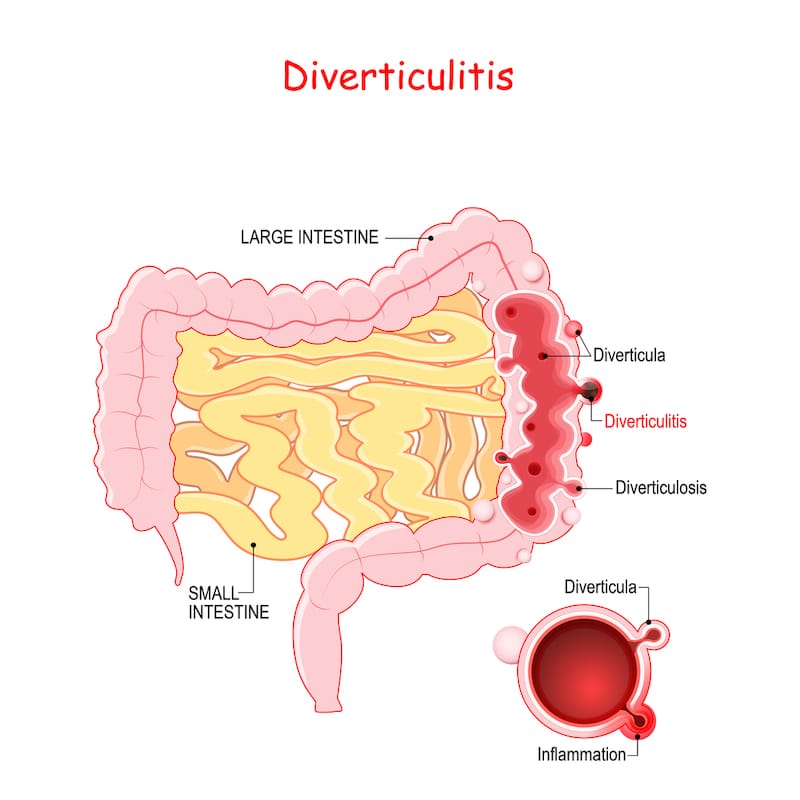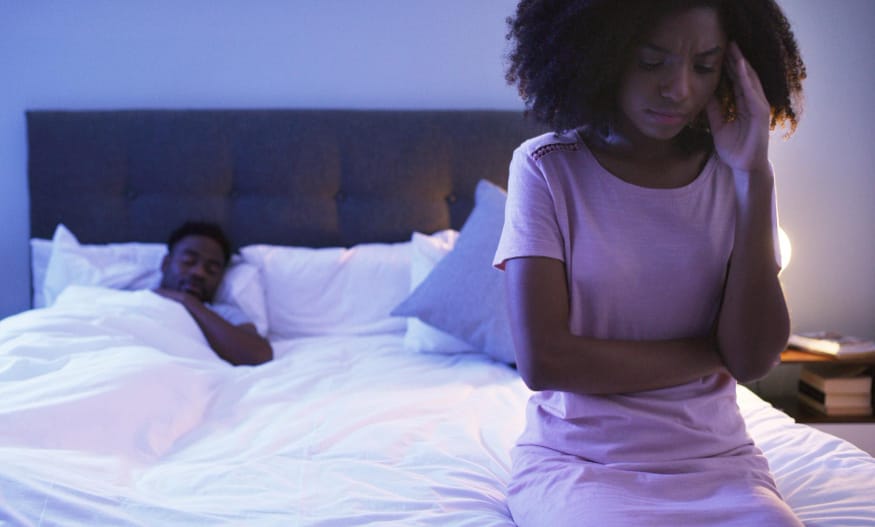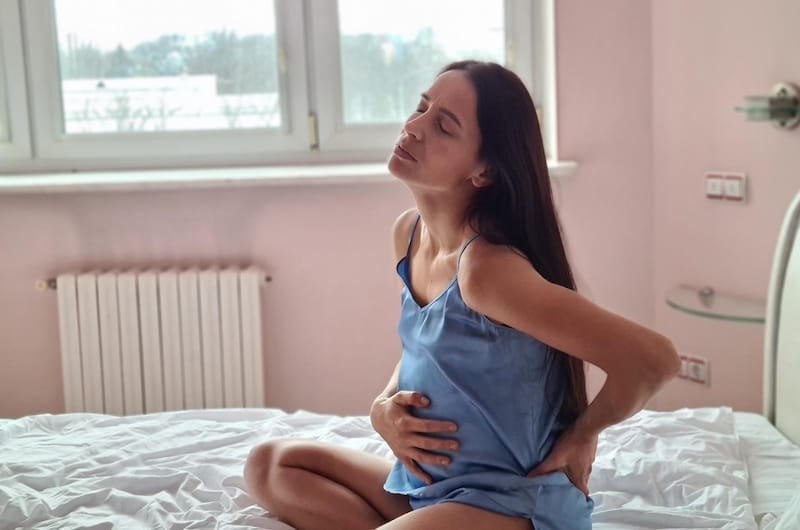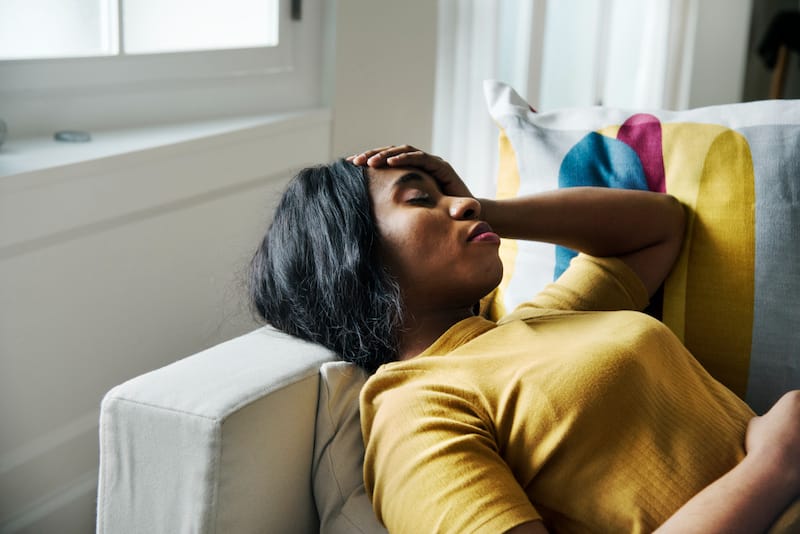Your body quickly loses energy when fighting an illness caused by an infection like diverticulitis. Other possible reasons could be that you’re suffering from dehydration, lack of iron and sleep, depression, unhealthy weight, and food allergies. Others also could be because of your age, pregnancy, alcohol intake, and antibiotic treatment. Treating diverticulitis with medication and lifestyle changes can reverse your feeling of getting easily tired.
Remember your science lesson about what your large intestines do? Large intestines turn undigested food or residues into a stool and store it until it exits your body through the anus.
Some people would refer to the large intestines as the colon. But, it has three parts-the colon, rectum, and anus.
In healthy individuals, a colon forms a smooth, U-shaped tube whose walls are made of layers of muscles and tissues. It’s about 5 feet long.
Many small arteries penetrate through its muscular walls to supply blood to the colon.
Of course, you’ve heard about polyps and colon cancer, but are you familiar with diverticular diseases?
What is diverticulitis?
Diverticulitis occurs when the small, bulging pockets (diverticula) that form in the lining of your colon tear become inflamed and, in some cases, result in an infection.
When these pockets form, you develop a condition known as diverticulosis.

It usually forms on the weakest area of the colon where blood vessels penetrate. Diverticulosis doesn’t cause any severe problems unless it becomes infected.
The cause of why these small pockets form isn’t clear, but many clinical experts believe that a low-fiber diet can increase your risk of developing diverticulosis.
Without enough fiber in your diet, your stools become smaller and harder. It causes you to strain your bowel movements, putting extra pressure on your colon and causing bulging pockets to form.
Other factors that may put you at risk of diverticulosis are:
- Age (40 years or older)
- High consumption of animal fat and red meat
- Obesity
- Sedentary lifestyle
- Smoking
- Frequent use of steroids, opioids, and nonsteroidal anti-inflammatory drugs (NSAIDs)
What are the symptoms of diverticulitis?
Diverticulosis may not give you any symptoms.
When it does, it’s usually mild. These colonic pouches are mostly harmless and don’t cause any discomfort, which makes the condition hardly noticeable.
Below are some common symptoms of diverticulosis:
- Pain on the left side of your abdomen which goes away as you pass gas or a stool
- Constipation
- Diarrhea
- Bloating
You might experience more severe symptoms with diverticulitis. Below are the following:
- Constant and persistent abdominal pain, especially on the left side
- Constipation or diarrhea
- Bloating and gas
- Nausea and vomiting
- Fever and chills
- Bloody stool
- Peeing or passing stool more often than usual
- Tenderness in your abdomen
- Rectal bleeding
10 reasons why you feel tired with diverticulitis
There could be many reasons you’re feeling tired while combatting your diverticulitis.
Your body is working overtime to fight the infection in your colon, causing your energy and stamina to reduce significantly, which results in you getting easily tired or experiencing extreme fatigue.
There are also other possible reasons for your tiredness. It includes the following:
1. You’re dehydrated
You’re at risk of dehydration when you’re ill or have an infection.
With diverticulitis, it can be easy for your body to lose more fluids than you take in. Because your body is made up mostly of water, about 60%, dehydration can cause you to feel more tired, weak, and lethargic.
So, it is essential to drink plenty of water every day.
2. You have iron-deficiency anemia
It’s a common type of anemia that results from a lack of iron in the body.
When you don’t get enough iron from your diet, your body doesn’t produce enough protein that enables red blood cells to bind with oxygen and deliver them to your cells.
Without enough oxygen, your body can’t produce energy. As a result, you’ll experience extreme fatigue and weakness.
Health conditions like diverticulitis and other gastrointestinal diseases may prevent you from absorbing enough iron from your food, resulting in anemia.
Treatments for anemia may include:
- Iron supplementation.
- Eating an iron-rich diet.
- Increasing vitamin C intake for better iron absorption.
3. You don’t sleep enough
Diverticulitis may keep you from getting enough sleep.
You’ll feel tired throughout the day without a proper amount of sleep.

Lack of sleep also prevents your body from producing hormones like somatotropin which promotes healing.
There are ways to help you sleep better and maintain a healthy gut which include the following:
- Practice daily stress management
- Get a 30-min moderate physical activity regularly
- Eat a balanced and healthy diet
- Include prebiotic or fiber-rich foods in your diet
4. You have depression
An illness can easily trigger depression, especially when it interferes with your daily routine.
Diverticulitis can cause depression, resulting in extreme fatigue or exhaustion and lack of energy to do your daily tasks.
Antidepressants can relieve your symptoms of depression.
Your doctor may also recommend you undergo psychotherapy.
5. You’re obese
If you weigh more than average, you’re at risk of developing chronic illnesses like diabetes, heart disease, liver problems, and sleep apnea.
Obesity also makes you feel exhausted or too tired to move your body. It puts you at high risk of developing diverticulitis.
So when you’re obese with diverticulitis, you may want to talk with dieticians, nutritionists, or your doctor to start losing weight healthily.
6. You have food allergies
Allergic reactions from certain foods can lead to weakness and discomfort.
Your doctor may already limit your food intake because of your diverticulitis.
If that’s the case, you should also talk with your doctor about the foods that give you allergies so they can adjust your meal plans.
7. You’re pregnant
When you’re expecting a baby while you have diverticulitis, expect you’ll experience more exhaustion than usual.

Taking care of another life inside you while combatting an illness can cost you much more energy.
You can talk to your doctor about available therapies and medications while pregnant and have diverticulitis.
8. You’re getting old
It’s expected that as you grow older, you quickly get tired. Additionally, you’re much more prone to different illnesses.
Old age also increases your risk of developing diverticulitis.
Consult your doctor about what medications and treatments you should undergo, especially when treating other health conditions.
9. You drink too much alcohol
Drinking alcohol or being alcoholic while your body is fighting an infection may slow down your healing.
It can also result in extreme fatigue in people with diverticulitis.
10. You take antibiotics
Antibiotics fight off infection. But, sometimes, it can also kill the healthy bacteria that regulate your gut health, resulting in fatigue and lethargy.
Home remedies for diverticulitis
If you only experience mild symptoms, your doctor will recommend at-home treatments.
Depending on the severity of your symptoms, they may prescribe you antibiotics to fight off the infection.
Most importantly, your doctor will make changes in your diet which include the following:
- Follow a clear, liquid diet. It will allow your bowel to rest and heal until your symptoms improve. Then, you can gradually add solid food.
- Add low-fiber foods to your diet. After a clear liquid diet, you can gradually add small amounts of fiber again. Don’t stay on a liquid diet much longer than your doctor recommends, as you may miss out on essential nutrients.
- Eat more fiber-rich foods. Unless you are experiencing flare-ups of symptoms, eating more fiber will regulate your gut health and prevent constipation.
- Drink enough fluids. It will help you to pass your bowel movements easily.
- Get more vitamin D. It may prevent diverticulitis complications.
You may also need to avoid the following:
- High FODMAP foods. These can trigger digestive symptoms like gas, bloating, and abdominal pain and may cause pressure in your colon.
- Red meat and processed products. These may not help in improving your symptoms.
- High sugar and fatty foods. Avoiding such foods may help prevent diverticulitis and/or reduce the severity of its symptoms.
In addition to changes in your diet, the following may also help alleviate your symptoms from diverticulitis:
- Take acetaminophen (Tylenol). It will relieve some pain in your abdomen. Avoid ibuprofen unless necessary and recommended by your doctor, as it may increase complications of diverticulitis.
- Use a heat compress. It can help with your stomach cramps.
- Try probiotics. It promotes gut health and potentially reduces symptoms of diverticulitis.
- Try herbs. Some types may reduce inflammation and fight infections like diverticulitis.
- Exercise more. It can help the body produce natural pain relievers (endorphins) and prevents constipation.
- Try acupuncture. It can help with pain and stress and may also relieve constipation.
- Use essential oils. These can help you to relax and relieve stress and pain. Aromatherapy has a positive impact on pain.
When do you need surgery?
You might need surgery when antibiotics and other at-home treatments don’t resolve your symptoms, and you experience the following symptoms listed below:
- Multiple severe flare-ups of diverticulitis
- Bleeding in your rectum
- Intense or severe abdominal pain that lasts for a few days or more
- Constipation, diarrhea, and vomiting lasting more than a few days
- Inability to pass waste because of colon blockage (bowel obstruction)
- A hole or puncture in your colon wall (perforation)
- You develop signs and symptoms of sepsis
Takeaway
You can manage mild symptoms of diverticulitis with medication and proper lifestyle changes.
Strictly following any dietary changes your doctor recommends will prevent complications. Following a clear liquid diet for a while until your symptoms will help your colon recover before adding solid food. You must do a low FODMAP diet while avoiding processed, red meat and food products high in sugar and fats.
You might need surgery in severe cases to find complete relief from your symptoms and avoid recurrence.
Resources
- https://www.healthline.com/health/colon-cancer
- https://www.healthline.com/health/polyps
- https://www.healthline.com/nutrition/prebiotics-benefits#benefits
- https://www.healthline.com/nutrition/foods-high-in-fodmaps
- https://www.healthline.com/health/food-nutrition/clear-liquid-diet


